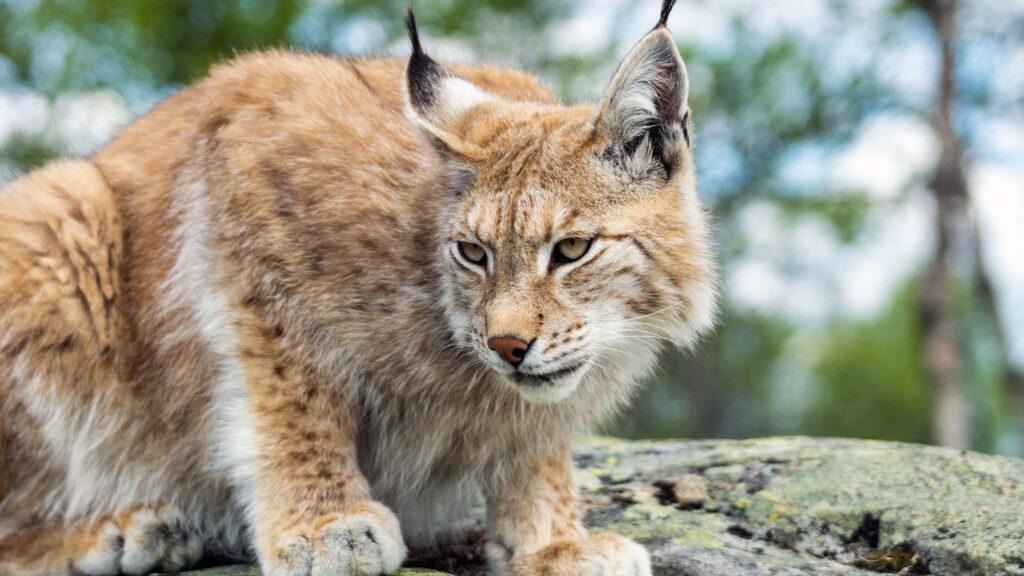Lynx reintroduction gains support but farmers remain wary
 © Adobe Stock
© Adobe Stock A recent survey by the Missing Lynx Project suggests that many residents in Northumberland potentially support the reintroduction of lynx to the area.
The idea of bringing back this native predator, which was hunted to extinction in the UK centuries ago, has sparked fresh debate among local communities, conservationists and farmers.
See also: Recent illegal lynx release is ‘reckless’ says NFUS
The year-long social consultation was carried out by The Missing Lynx Project and led by The Lifescape Project, in partnership with Northumberland Wildlife Trust and The Wildlife Trusts.
It aimed to gauge public opinion on the possible return of lynx to the region.
The findings revealed that 72% of people living in the project area – which includes parts of Northumberland, bordering areas of Cumbria, and southern Scotland – potentially support the reintroduction.
However, some residents and stakeholders remain cautious, with opponents of the proposal highlighting concerns about the impact on farming, wildlife management, and the wider rural economy.
The project is now working with people in the region to discuss how a potential reintroduction could be managed, with consultation ongoing.
Dr Deborah Brady, project manager and lead ecologist at The Lifescape Project, said: “We will continue to work with local communities to consider how a reintroduction project could be managed to maximise benefits and reduce risks.”
Europe example
In addition to extensive interviews and workshops with key stakeholders, the project took a group of local farmers to Europe to visit two lynx projects and livestock farmers living alongside lynx.
Sheep farmer Lauren Harrison, who is based near Hadrian’s Wall and joined the visit, said it is possible to live alongside lynx.
“The risks to livestock can be minimal and there are so many positives.
“Tourism is an obvious one, but I also think a more balanced ecosystem is beneficial to farmers.”
A healthy population
The results of the survey coincide with the publication of a new peer-reviewed paper produced by the project, Exploring the ecological feasibility of restoring Eurasian lynx to Great Britain using spatially explicit individual-based modelling.
Releasing 20 lynx into the area, the paper suggests, would create a population of about 50 animals covering north-west Northumberland, the edge of Cumbria and the bordering areas of southern Scotland – the only areas of England and Wales with enough extensive woodland for lynx to thrive.
The Wildlife Trusts’ director of landscape recovery, Dr Rob Stoneman, added that bringing back lynx could benefit wildlife more widely – something that he said “is sorely needed in this nature-depleted country”.
‘Care must be taken’
However, Scottish Land & Estates policy director Stephen Young said introducing any species to an area is likely to have an impact on the wildlife and people who already live there.
“We have seen through the recent illegal releases of both lynx and feral pigs the damage that can be done to the species released and other animals in the surrounding countryside,” he said.
“Care must be taken that there is a full understanding of potential damage to agriculture, as well as wildlife, such as ground-nesting birds and red squirrels, which are already established in the proposed release location.”
While lynx may have existed previously in some parts of the country, it is important to deal with the landscape as it is now, which may have significantly changed in the intervening period, he said.
Defra response
In response to the survey, Defra confirmed that lynx are listed under the Dangerous Wild Animals Act 1976, meaning local authorities must license their keeping and they cannot be released into the wild.
The government acknowledged ongoing stakeholder projects assessing the feasibility of lynx reintroduction in England but emphasised that more evidence is needed to understand the potential impact.
A spokesperson told Farmers Weekly: “This government is absolutely committed to restoring and protecting nature and we support species reintroductions where there are clear benefits for nature, people and the environment.”
Defra will continue to collaborate with Natural England on species reintroductions across England. The Lynx Trust UK’s application for reintroduction in Kielder is not currently under consideration by Natural England.
